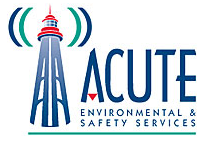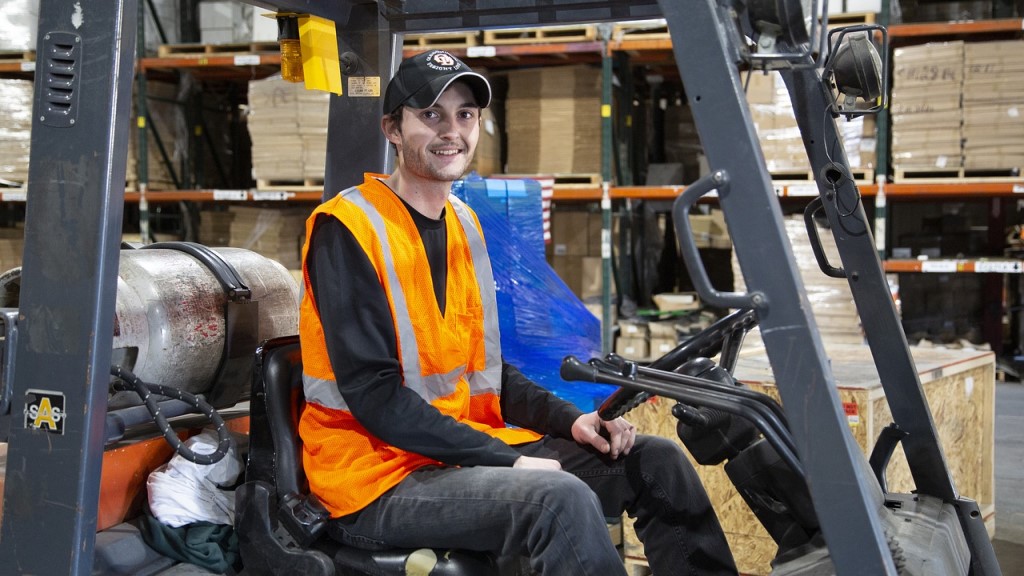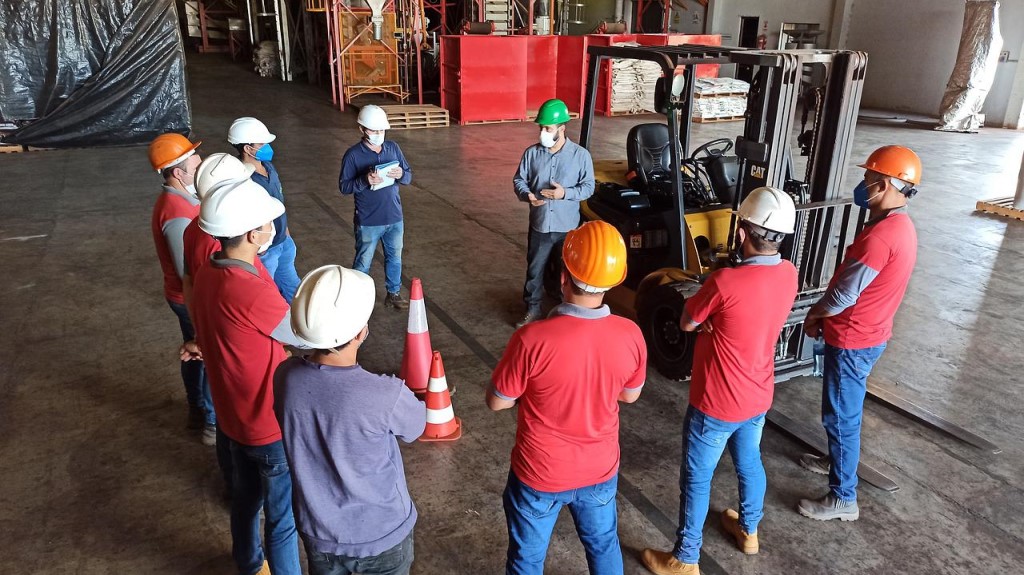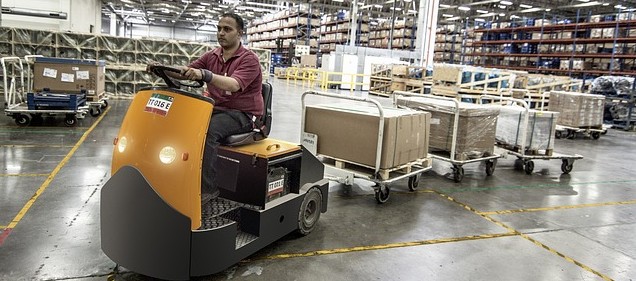Operating a forklift is a high-risk task, and in industrial and warehouse settings, proper training is not just important, it’s legally required. In London and across Ontario, employers must ensure that forklift operators are certified, competent, and compliant with the Ministry of Labour regulations.
Whether you’re an employer looking to reduce risk and improve efficiency or a worker aiming to meet job site requirements, forklift certification is essential.
Here’s what you need to know.
1. Who in London Needs Forklift Certification?
2. What Forklift Training Involves
3. How Forklift Certification Improves Workplace Safety & Efficiency
- Certified Operators Know How to Conduct Proper Inspections
- Certification Helps Create a Safer Work Environment
Here’s our quick and handy guide to get you on the right track. Read on to learn more, and trust ACUTE Environmental & Safety Services for your forklift safety training needs.
Who in London Needs Forklift Certification?
Clause 25(2)(a) of the Occupational Health and Safety Act obligates an employer to “provide information, instruction and supervision to a worker to protect the health or safety of the worker.” Regulation 851 is more specific, saying a forklift is only to be operated by a competent person, defined as one who:
-
Has the knowledge, training, and experience to do the work safely;
-
Understands applicable health and safety legislation; and
-
Is aware of potential and actual workplace hazards.
Your employer, therefore, has a clear duty to establish the competence of any worker with relevant and comprehensive training. This must not be overlooked for the safety of everyone involved.
ACUTE’s forklift training is an interactive eight-hour training program wherein your staff will learn the essential principles involved in the safe operation of a forklift.
Participants will learn about the limitations that affect truck stability and safe loading criteria, and prospective operators will be able to recognize the hazards that present a risk to themselves and those around the truck.
ACUTE’s training provides a complete understanding of the fundamentals of handling high-risk loads as well as the legal responsibilities associated with lift trucks.
2. What Forklift Training Involves
In our interactive eight-hour training program, your staff will learn the essential principles involved in the safe operation of a lift truck.
Participants will learn about the limitations that affect truck stability and safe loading criteria.
Operators will be able to recognize the hazards ahead of time that present a risk to themselves and those around the truck.
A complete understanding of the fundamentals of handling high-risk loads as well as the legal responsibilities associated with lift trucks, will also be covered.
Training program topics include:
- Classes and types of lift trucks
- Relevant legislation
- Lift truck features and safety equipment
- Basic hydraulics
- Pre-operational inspection
- Start-up (mounting and dismounting)
- Stability principles of lift trucks
- Travelling without a load
- Travelling with a load
- Capacity and load charts
- Load handling (picking up a load)
- Load lifting and handling—elevated level–stacking
- Operating hazards and precautions
- Refuelling (propane exchange only) and recharging (battery hazards)
- Shutdown procedures (parking)
You will learn by:
- Classroom interaction with experienced instructors
- Exploring legislative requirements
- Demonstration and hands-on training on a specific class of lift truck
- Practical skills testing evaluation on the class of lift truck located at your workplace
- Detailed handouts, videos and quizzes
3. How Forklift Certification Improves Workplace Safety & Efficiency
Forklift certification isn’t just a box to check — it’s a critical component of creating a safe and productive work environment. Certified operators are better equipped to handle lifting equipment properly, identify hazards, and follow safety protocols, reducing the risk of workplace accidents and costly downtime.
Certified Operators Know How to Conduct Proper Inspections
Regular forklift safety inspections and preventative maintenance are essential, and certified operators are trained to perform them correctly, according to the Ontario Ministry of Labour, Immigration, Training and Skills Development.
To ensure safe and efficient operation, it’s essential to keep lifting equipment in good condition to prevent mechanical failures. This includes reviewing maintenance reports regularly and adhering to the manufacturer’s recommended maintenance schedule.
Before using any lifting device for the first time, it’s important to examine its load capacity and confirm that it’s properly rated for the task. Equipment should be constructed with appropriate components such as chains, slings, and ropes, and these parts must be inspected frequently for any signs of wear or damage.
Certified operators play a key role in this process, as their training enables them to identify potential issues early and take corrective action before minor problems escalate.
Certification Helps Create a Safer Work Environment
In addition to proper forklift handling, certified operators are trained to work safely around other employees and within busy environments.
At the same time, employers have a responsibility to take reasonable precautions to maintain a safe workplace.
Certification programs support this by teaching workers to follow important safety protocols. These include using protective barriers, clear signage, and designated walkways to guide traffic flow.
In tight or crowded areas, operators are trained to coordinate with competent signalers to avoid accidents. Forklifts should always be immobilized when unattended to prevent unintended movement, and warning lights and audible signals should be used to alert nearby pedestrians. Policies that separate pedestrian and forklift traffic, enforce speed limits, and ensure high driver visibility are also emphasized.
Additionally, safety awareness training should be provided to all staff, not just forklift operators. When both workers and management are aligned — and certification is part of the process — the workplace becomes safer and operates more efficiently.
Trust ACUTE For Your Forklift Safety Training Needs!
You can trust ACUTE to help your business understand your training challenges while also taking care of the most crucial aspect of a safety program: providing unparalleled tailoring and customer service.
Here are just a few things you can expect when training with ACUTE:

- Open Door Instructor-Student Partnership – ACUTE’s training services emphasize client participation. Staff want to build relationships with clients and serve as a touchstone for advice anytime moving forward.
- Serving Your Team and Industry – With a vast array of clients in manufacturing, construction, health, academic, and government agencies, ACUTE brings the best safety practices from across the spectrum to your workplace.
- 100 Years Combined Experience – ACUTE provides comprehensive health and safety training, on-site safety services, and consulting services. With over 100 years of combined experience, our staff offer more than theoretical or abstract ideas. ACUTE offers solutions.
- Track Record of Success – ACUTE is rated 4.9/5 stars on Google reviews, demonstrating a commitment to our clients, quality, and passion for training.
“The best place to get trained, period. The lessons include plenty of hands on components which definitely help retain the knowledge taught within the classrooms. Above all, the instructors know their stuff, they are all extremely knowledgeable and draw upon their own experiences to help engage the class. If I could give them higher than 5 stars, I would, and I would most definitely do my training refresher courses here again.” – Ali A
ACUTE is located in Waterloo, Ontario, and services customers from cities such as Toronto, Mississauga, Brampton, Hamilton, Milton, Kitchener, London, Guelph, and others across Ontario.





